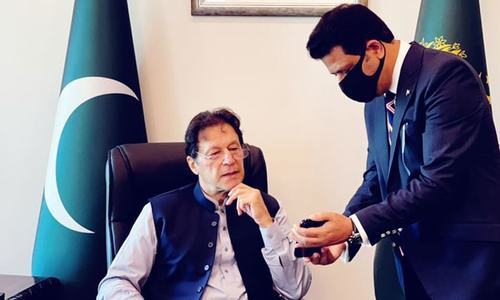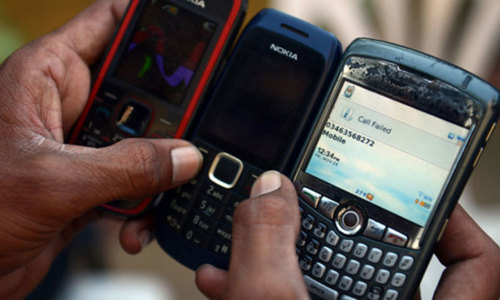ISLAMABAD: A meeting of National Assembly’s Standing Committee on Information Technology on Thursday witnessed a curious discussion on security of vital data as an official of the Federal Investigation Agency (FIA) claimed that system of the National Database and Registration Authority (Nadra) had been hacked but changed his statement when pressed to elaborate upon his remarks.
The FIA official also told the committee’s members that many SIM cards had been issued illegally after manipulation of the Nadra data.
While discussing widespread use of illegal SIMs in the country, the committee’s members observed that containing the sale of such cards was a challenge.
The committee called for enhancing capacity building of relevant departments to ensure cybersecurity in the country.
Nadra refutes his statement, denies its system has been hacked
“We have discovered that Nadra’s data has been compromised, it has been hacked,” Tariq Pervez, additional director of FIA’s Cybercrime Wing, told the meeting chaired by Ali Khan Jadoon.
The FIA had seized around 13,000 illegal SIMs during a crackdown in Faisalabad, he said.
Mr Pervez said that 89,000 complaints had been received by his wing, but they did not have the sufficient number of staff to address the complaints reported on a daily basis. “The FIA’s cybercrime wing has only 162 investigation officers,” he added.
His statement stirred alarm among the committee members who put various questions to him regarding theft of Nadra data.
At this, the FIA’s additional director altered his statement, saying that Nadra data had not been hacked, but its biometric system had been compromised and used during the SIM verification process.
He also told the committee that whenever they traced a suspect involved in financial frauds, the suspect usually turned out to be an elderly man or a woman, whose data was being used by someone else.
However, Nadra refuted the claim of the FIA official. In a statement issued after the committee meeting, Nadra spokesman said that the public biometric data was completely safe and it had not been hacked.
“The FIA statement regarding hacking of biometric data is based on misunderstanding,” the spokesman said, adding that Nadra would seek clarification from the FIA over the “unnecessary statement and misrepresentation of the issue”.
Responding to concerns of the committee members, Pakistan Telecommunication Authority (PTA) chairman retired Maj Gen Amir Azeem Bajwa said that no mobile phone company had been given permission to sell SIMs on the door-to-door basis.
“There has been 600 per cent decrease in the sale of illegal SIMs during the past one year,” he said.
The PTA chairman clarified that culprits obtained thumbprints of unaware people, mostly elderly persons or uneducated women, for other purposes, such as receiving digital payments, and these biometric verifications were then used to issue SIMs.
He said that another illegal method was to copy thumbprints, but this system was being phased out and live fingerprint detection system was being introduced to eliminate the use of silicon thumbs.
He said: “Two mobile phone operators have been fined Rs100 million and Rs50m, respectively, for showing carelessness while issuing SIMs and more than 0.53m SIMs have been blocked after receiving complaints.”
The PTA chairman said that 175,000 illegally issued SIMs had been blocked since November 2020, 2,600 of them in October this year.
He informed the committee that complaints could be lodged against those involved in sending messages related to financial fraud at the PTA website.
The committee was briefed by IT Secretary Dr Sohail Rajpur on the social media rules and the National Cyber Security Policy, 2021.
Mr Jadoon of the PTI, the chairman of the committee, stressed that it was essential to keep national interest and national perspective into consideration while formulating laws.
The committee members mainly belonging to the PML-N and the PPP said that rules and regulations should be framed after consultation with public representatives. The chairman of the committee decided that a separate briefing would be held on social media rules.
Regarding the cybersecurity policy, the committee unanimously called for strong measures to secure data, especially those related to national security and individuals’ privacy.
MNA Monaza Hussain briefed the committee on salient features of the visit of a parliamentary delegation to Azerbaijan last month. She said that there was significant potential of IT products’ export to Azerbaijan.
The meeting was also attended by Javairia Zafar Aheer, Kanwal Shauzab, Nusrat Waheed, Ayesha Rajab Ali, Naz Baloch, Syed Mehmood Shah, Shameem Ara Panhwar, Mahesh Kumar Malani and Maiza Hameed.
Published in Dawn, November 26th, 2021















































